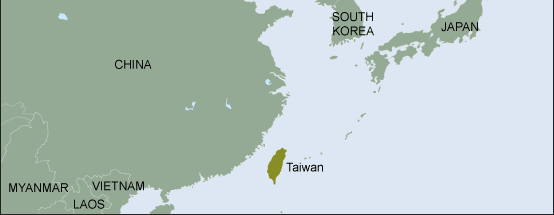Andrew L. Urban
Australia has earned the international community’s respect – and got China’s attention – with our highly visible resistance to China’s bullying tactics. As for Taiwan … most China experts and commentators are worried, anticipating an armed invasion. But maybe President Xi loses sleep over that scenario, and he has good reason to.
Perhaps we should use our gutsy profile to try dampen China’s enthusiasm for annexing Taiwan, with some pragmatic reminders to President Xi – emphasising what no doubt keeps President Xi and his entire military and security apparatus awake at night. It could take the form of a briefing to the Chinese Ambassador to Australia – with a copy to Zhao Lijian, the Chinese foreign ministry spokesman who this week denounced remarks supporting Taiwan by Japan’s deputy PM, Taro Aso, as “extremely wrong and dangerous” and said that a diplomatic protest had been made. He said that Japan had not learnt the lessons of history and its “countless crimes of aggression against China”.

Zhao added: “China is strongly dissatisfied and resolutely opposed to such remarks. Today’s China is not the China of the past. We will never allow any country to meddle with Taiwan affairs in any way. No one should underestimate the strong determination, firm will and powerful ability of the Chinese people to defend national sovereignty.”
China’s leadership has been threatening to take over Taiwan by force for decades. So what is China waiting for? Donald Trump is no longer making the decisions, the Wuhan virus has imposed crisis management on the world and made a dent in the West’s bank account. Admittedly, China’s evils have been exposed more universally than before and its circle of friends is not so much a circle these days as an isolated Russian despot.
As history shows, China has always been on the brink of launching an attack … so we should be sceptical. For China, hovering threateningly over Taiwan has strategic value; occupation becomes a strategic liability. But national pride urges them on towards Taiwan. Pride, Mr Xi, can be a dangerous and self harming weakness ….
But who knows?
So China invades Taiwan. It’s a big, bloody job – even without international intervention. The 23.6 million democratically governed Taiwanese do not have welcome mats out. The invasion force has to overcome well armed and trained defence forces, arrest all members of parliament, secure all arms depots, take control of transport, communication and broadcast facilities, take control of police weapons and fill the streets with military to control the well funded (and no doubt well prepared) resistance.
Simultaneously, the invaders face the massive task of locking down and ‘re-educating’ all the institutions and departments. Every bureaucrat is a potential covert agent, ready – nay, keen – to sabotage the invader. (Ask Donald Trump about the Deep State…)
The vast resources required to repair the medical and physical war damage and maintain a stranglehold on an occupied Taiwan would be highly challenging. It’s not like Hong Kong, a craven political leadership, population 7.5 million. Apart from the difference in population, Hong Kong was politically – if illegally -‘assimilated’, not invaded by military force. And coming on top of Hong Kong, a much agitated free world could easily erupt.
This is the scenario that I believe keeps Xi awake at night.
The population remains a determined, energised and innovative enemy; guerrilla warfare is exceedingly difficult to subdue by conventional force – as history has shown. An occupied Taiwan would be a permanent thorn in China’s side, its pride no less hurt by the unwilling prisoner-partner in their bed.
Our advice: don’t do it, Mr Xi.
Most foreign governments, including Japan, acknowledge that Taiwan is a sovereign part of China – the “one China” policy. Western governments, however, insist that reunification must take place without force, something that Beijing refuses to rule out.
Historical footnote (courtesy Wikipedia):
In 1945, following the end of World War II, the nationalist government of the Republic of China (ROC), led by the Kuomintang (KMT), took control of Taiwan. In 1949, after losing control of mainland China in the Chinese Civil War, the ROC government under the KMT withdrew to Taiwan and Chiang Kai-shek declared martial law. The KMT ruled Taiwan (along with the Islands of Kinmen, Wuqiu and the Matsu on the opposite side of the Taiwan Strait) as a single-party state for forty years, until democratic reforms in the 1980s, which led to the first-ever direct presidential election in 1996. During the post-war period, Taiwan experienced rapid industrialization and economic growth known as the “Taiwan Miracle“, and was known as one of the “Four Asian Tigers“.
AS I WAS SAYING…
The day after I posted the above, Clive Williams, visiting professor at the ANU’s Centre for Military and Security Law and Strategic and Defence Studies Centre, wrote in The Australian: “China lacks the deployment capability to take back Taiwan by force, and any military preparations to do so would be obvious to US intelligence agencies. This would provide sufficient warning time for the US and its powerful northeast Asian allies, Japan and South Korea, to warn China off. (China’s leaders are no doubt cognisant of Sun Tzu’s dictum to use force only when you know you can win.)”
